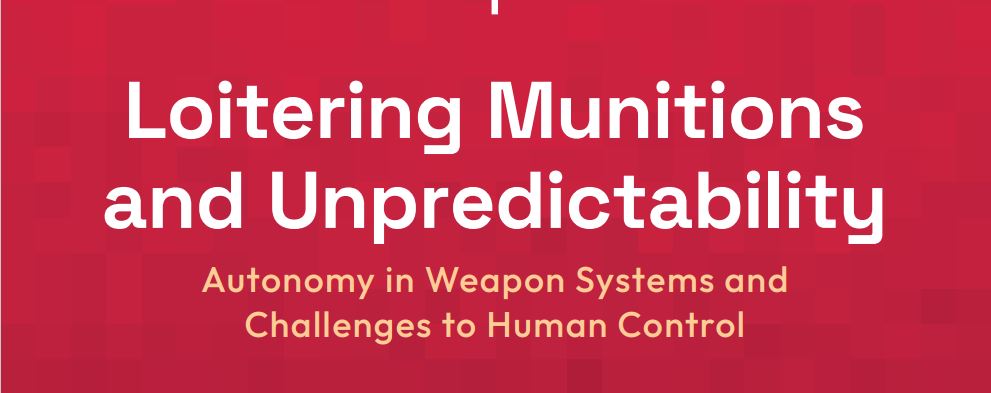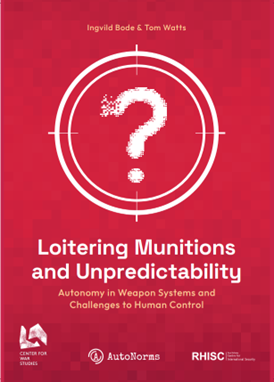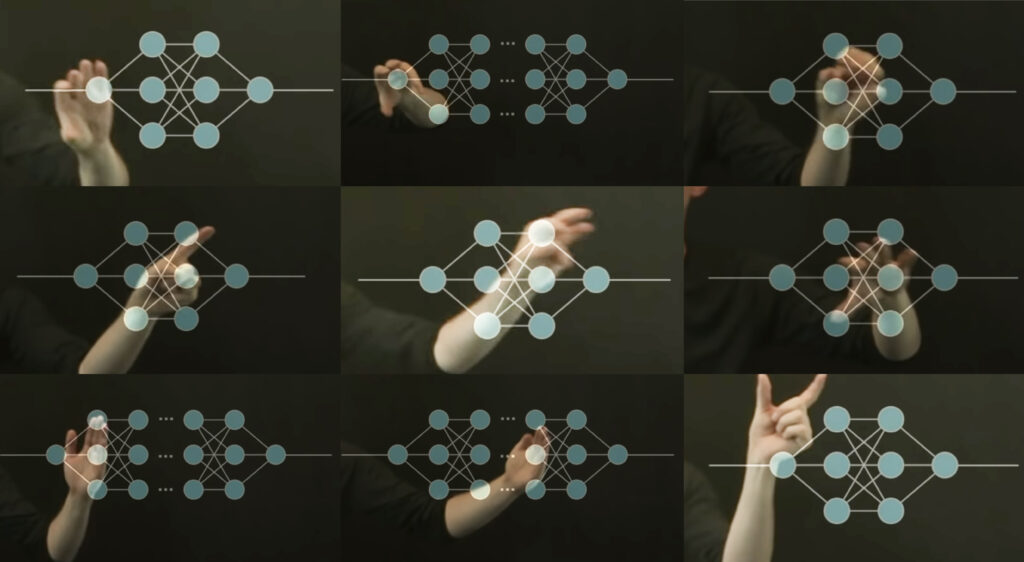Navigating the Complexities of Exercising Human Agency in Human-Machine Interaction Across the AI Lifecycle

This blog is based on the breakout session titled “Responsible Human-Machine Teaming Across the AI Lifecycle: An Interactive Scenario”, co-organised by the AutoNorms project and Johns Hopkins University Applied Physics Laboratory (JHU APL) at the Responsible AI in the Military Domain (REAIM) Summit 2024 in Seoul, South Korea. You can watch the breakout session here. […]
The New AutoPractices Project: Toward Governing AI Technologies in Military Decision-Making from the Bottom Up

On 1 June 2024, the AutoNorms team started a new policy-oriented project called AutoPractices. The purpose of the AutoPractices project is to initiate and accompany a process of social innovation to govern autonomous and AI technologies (AIT) in the military domain from the bottom up. The project aims to do this by addressing the practices […]
Loitering Munitions Report Online Launch Event

On 8th December 2023 13.00-14.15 (CET)/12.00-13.15 (GMT), an expert panel (including Laura Bruun, Stockholm International Peace Research Institute) will discuss the major findings of the “Loitering Munitions and Unpredictability: Autonomy in Weapon Systems and Challenges to Human Control” report published earlier this year. You can register to attend this online event here. Co-authored by Dr. […]
The Creator of New Thinking On AI? Popular Culture, Geopolitics, and Why Stories About Intelligent Machines Matter

Whilst the depiction of weaponised artificial intelligence (AI) technologies in popular culture is often highly inaccurate and dramatized, Hollywood blockbusters provide the starting point from which many members of the public begin to develop their thinking about these technologies. For instance, news articles discussing AI are often accompanied with images of metallic silver skulls with […]
Five Questions We Often Get Asked About AI in Weapon Systems and Our Answers

By Anna Nadibaidze and Ingvild Bode The ongoing integration of artificial intelligence (AI) and autonomous technologies in weapon systems raises many questions across a variety of fields, including ethics, law, philosophy, and international security. As part of the AutoNorms project, we have contributed to many of these discussions over the past three years, including through […]
Loitering Munitions and Unpredictability: Autonomy in Weapon Systems and Challenges to Human Control

Download the report here By Ingvild Bode and Tom Watts A new report published by the Center for War Studies, University of Southern Denmark and the Royal Holloway Centre for International Security highlights the immediate need to regulate autonomous weapon systems, or ‘killer robots’ as they are colloquially called. Written by Dr. Ingvild Bode and Dr. […]
A Question of Trust? New US Initiatives to Tackle the Human Control Problem

A lack of or a substantially diminished quality of human control is often understood as the major problem associated with military AI. The US Department of Defense (DoD) ‘Directive 3000.09’ that was released in 2012 as one of the first political documents on autonomy in weapon systems, for example, states in its updated version from […]
Consequences of Using AI-Based Decision-Making Support Systems for Affected Populations

The following essay builds on remarks delivered by Ingvild Bode as part of the Expert Workshop “AI and Related Technologies in Military Decision-Making on the Use of Force”, organised by the International Committee of the Red Cross (ICRC) & Geneva Academy Joint Initiative on the Digitalization of Armed Conflict on 8 November 2022. I want […]
Reflecting on the Future Norms of Warfare

[The following essay builds on a contribution submitted by Ingvild Bode to the RUSI/HRI project ”The Future Rules of Warfare”. The essay reflects on how current norms of conflict and warfare might be changing.] The legal norms enshrined in the UN Charta, as well as associated legal frameworks such as the Geneva Conventions, the International […]



